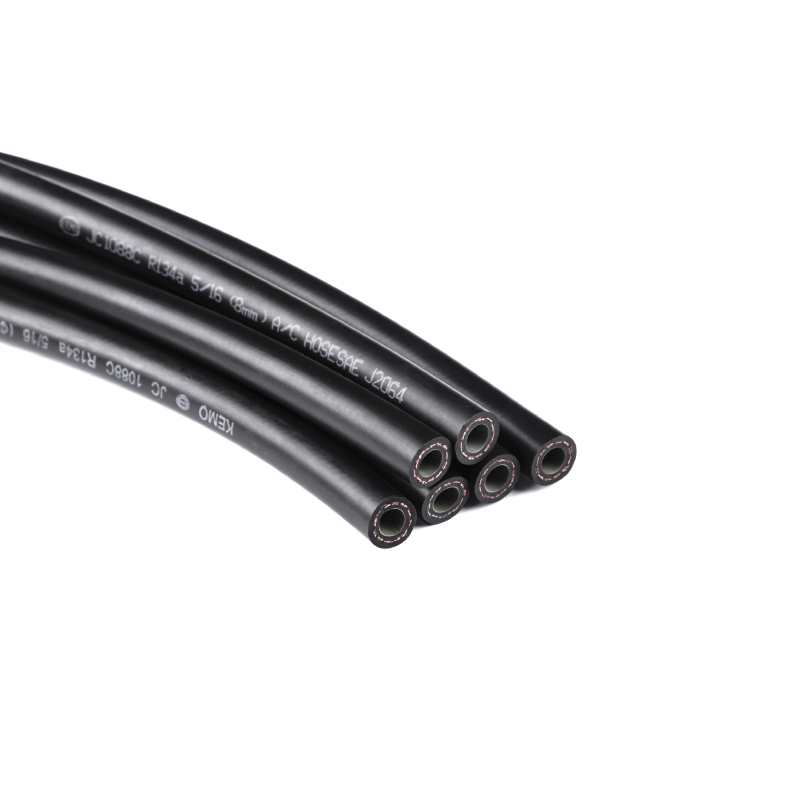diesel fuel line hose
Nov . 24, 2024 09:22 Back to list
diesel fuel line hose
Understanding Diesel Fuel Line Hoses Importance, Types, and Maintenance
Diesel fuel line hoses are critical components in the functioning of diesel engines, ensuring the safe and efficient delivery of fuel from the tank to the engine. These hoses are designed to handle the high pressures and unique properties of diesel fuel, which can differ significantly from gasoline. Understanding the types, functions, and maintenance of diesel fuel line hoses is essential for anyone involved in the maintenance or operation of diesel-powered equipment.
The Importance of Diesel Fuel Line Hoses
Diesel engines are widely used in various applications, including trucks, buses, construction equipment, and marine vessels. The diesel fuel line hose plays a crucial role in the performance and reliability of these engines. It must be resistant to the corrosive properties of diesel fuel, withstand high temperatures, and endure the mechanical stresses of constant movement. A malfunctioning fuel line hose can lead to fuel leaks, engine inefficiency, and even catastrophic engine failures, making it imperative to use high-quality hoses that meet industry standards.
Types of Diesel Fuel Line Hoses
There are several types of diesel fuel line hoses, each designed for specific applications and operational conditions. The most common types include
1. Rubber Fuel Hoses These are the most widely used diesel fuel hoses. Made from synthetic rubber compounds, they offer flexibility, durability, and resistance to cracking and abrasion. However, they may not be suitable for extreme temperature conditions and should be checked regularly for wear.
2. Reinforced Fuel Hoses Often constructed with layers of rubber and reinforced with synthetic fibers or steel wires, these hoses can withstand higher pressures. They are ideal for heavy-duty applications and are commonly used in commercial vehicles and industrial machinery.
3. PTFE (Polytetrafluoroethylene) Hoses Known for their chemical resistance and low friction properties, PTFE hoses are an excellent choice for specialty applications. They can handle extreme temperatures and are resistant to a wide range of chemicals, making them suitable for high-performance diesel engines.
4. Conductive Hoses These hoses are designed to dissipate static electricity, reducing the risk of sparks that could ignite fuel vapors. They are particularly important in environments where fuel is being transferred, such as fuel storage facilities and during refueling procedures.
diesel fuel line hose

Maintenance of Diesel Fuel Line Hoses
Regular maintenance of diesel fuel line hoses is vital to ensure their longevity and reliability. Here are some key maintenance practices
1. Visual Inspections Regularly inspect the hoses for signs of wear, such as cracks, bulges, or fraying. Pay attention to any leaks, which can indicate a failing hose. If any damage is detected, the hose should be replaced immediately.
2. Check Connections Ensure that all connections are secure and free from leaks. Loose or corroded fittings can lead to fuel loss and create hazardous conditions. Tighten connections as necessary and replace any corroded fittings.
3. Monitor Performance Keep track of your diesel engine’s performance. Any sudden drops in power or efficiency can indicate fuel delivery problems, possibly linked to the fuel line hoses. If performance issues arise, investigate the fuel delivery system.
4. Temperature Management Diesel fuel can thicken in cold conditions and cause challenges in fuel delivery. Adequate insulation or heated fuel lines may be necessary in colder climates to prevent fuel from gelling and obstructing flow.
5. Installation Considerations When replacing fuel line hoses, ensure they are installed correctly and to manufacturer specifications. Using the wrong type of hose or improper fittings can compromise the entire fuel delivery system.
Conclusion
Diesel fuel line hoses are fundamental to the proper functioning of diesel engines. By understanding their types and importance, as well as adhering to regular maintenance practices, operators can ensure optimal performance and safety in diesel-powered equipment. Investing time in maintenance can prevent costly repairs and extend the life of the engine, underscoring the saying that an ounce of prevention is worth a pound of cure. Whether you are a fleet manager, technician, or a diesel enthusiast, knowledge about fuel line hoses is integral to a smooth-running diesel operation.
